The 1st International Health Humanities Conference Successfully Hosted: Interdisciplinary Dialogue on Global Health Issues
The 1st International Health Humanities Conference (IHHC) was successfully held in Suzhou from May 23 to 24, 2025. Organized by XJTLU's Research Centre for Culture, Communication and Society (CCCS) and the School of Humanities and Social Sciences (HSS), the conference brought together nearly 70 experts and scholars from prestigious institutions across China and abroad.
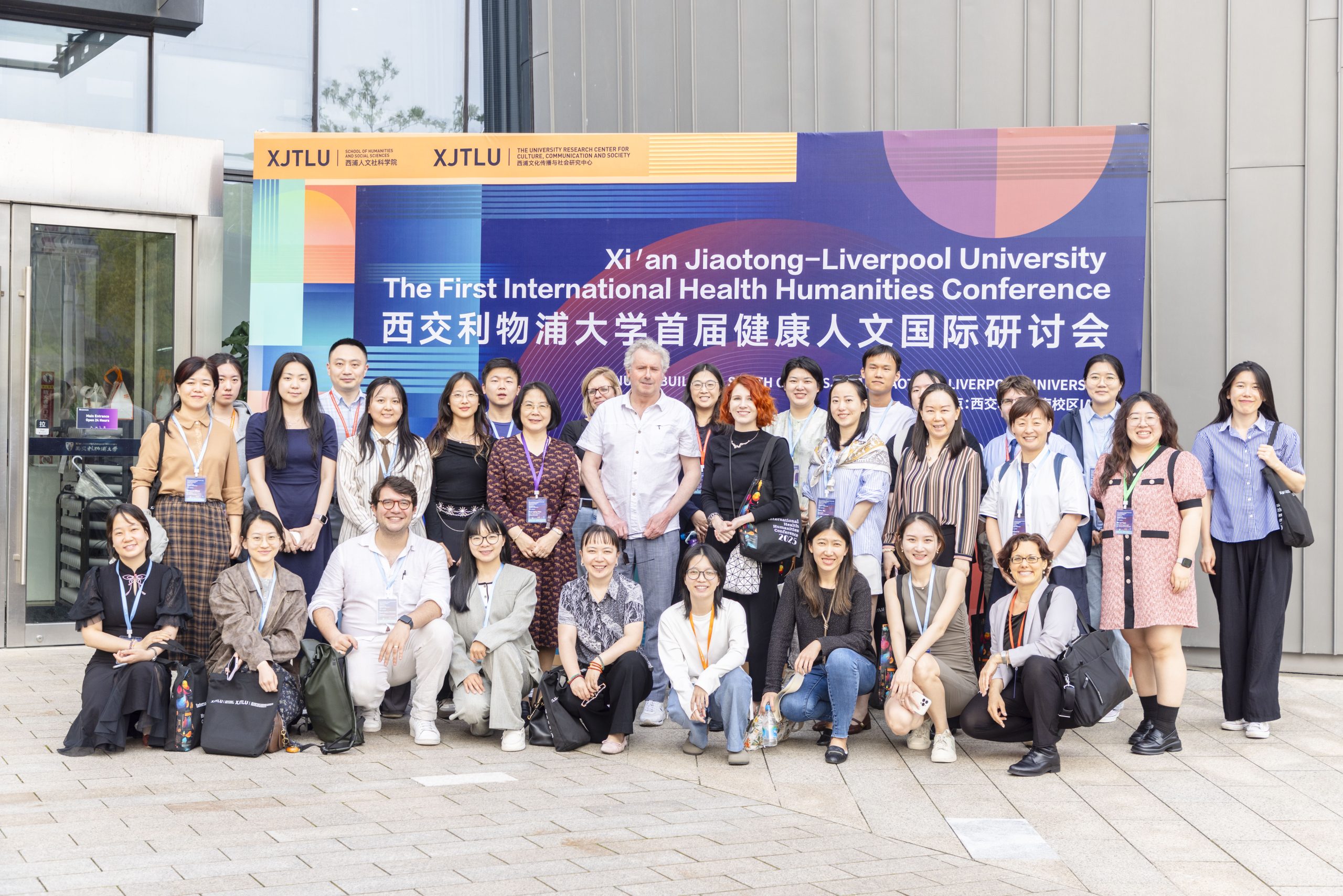
Group Photo of IHHC
The 1st IHHC welcomed academics and experts from Peking University, Nanjing University, Nankai University, University of Nottingham, Sun Yat-sen University, Beijing Foreign Studies University, Fudan University Huashan Hospital, the Second Affiliated Hospital of Suzhou University, China Academy of Chinese Medical Sciences, Capital Medical University, Nanjing University of Chinese Medicine, Queen Mary University of London, University of Bath, University of Lisbon, and the Centre for Ageing and Life Course at the University of Liverpool. The conference aims to explore global health humanities topics from artistic, humanistic, and social science perspectives, including health communication, ageing and care, medical history, Chinese and foreign medical cultures, and art therapy, fostering a platform for interdisciplinary research and international collaboration.
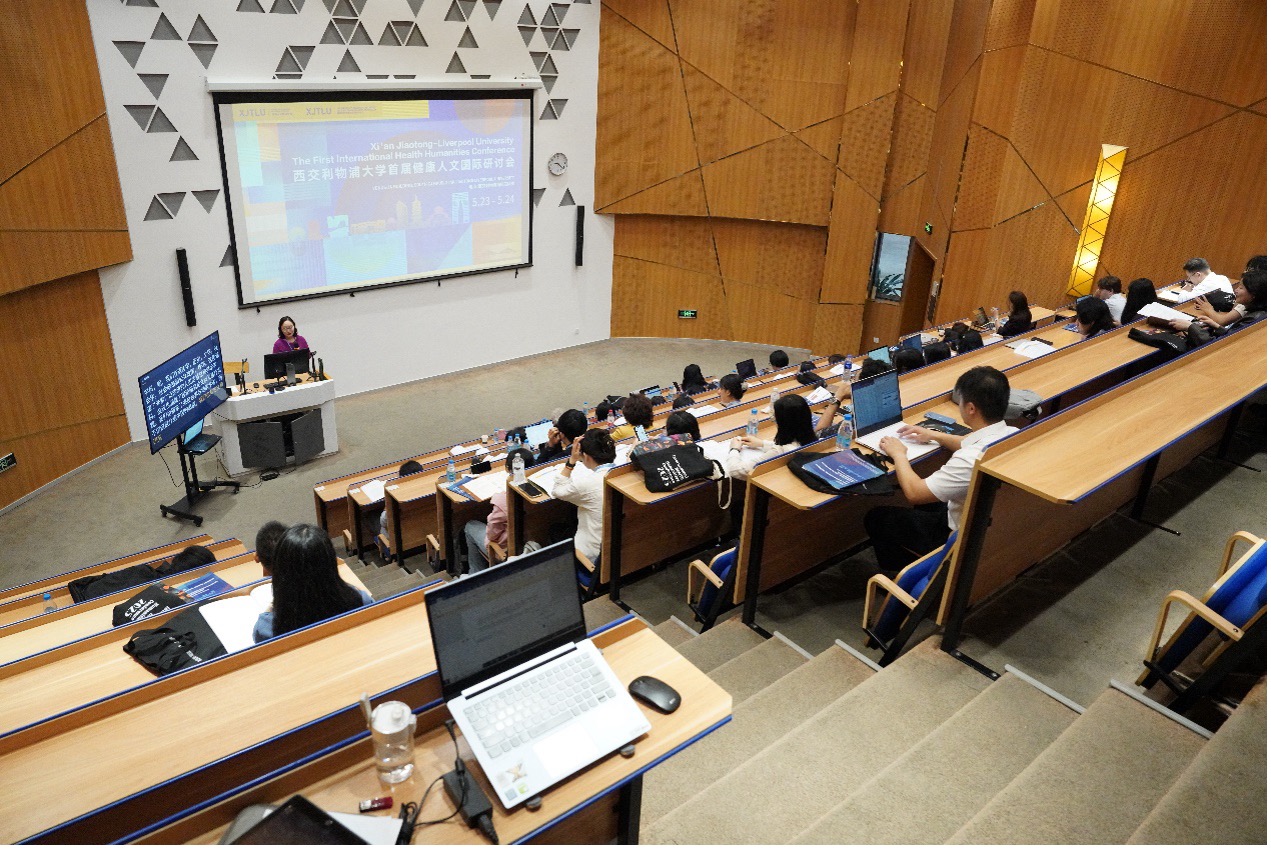 Opening Ceremony of IHHC
Opening Ceremony of IHHC
Professor Beibei Tang, Chair of CCCS and Dean of HSS, warmly welcomed the guests in her opening speech. "This international conference is the first of its kind in the health humanities field in XJTLU's 20-year history, marking a significant milestone," she stated. “XJTLU is actively promoting its visiting scholar program, and we warmly welcome interested scholars for short-term visits and exchanges to foster in-depth academic discussions and research collaborations.”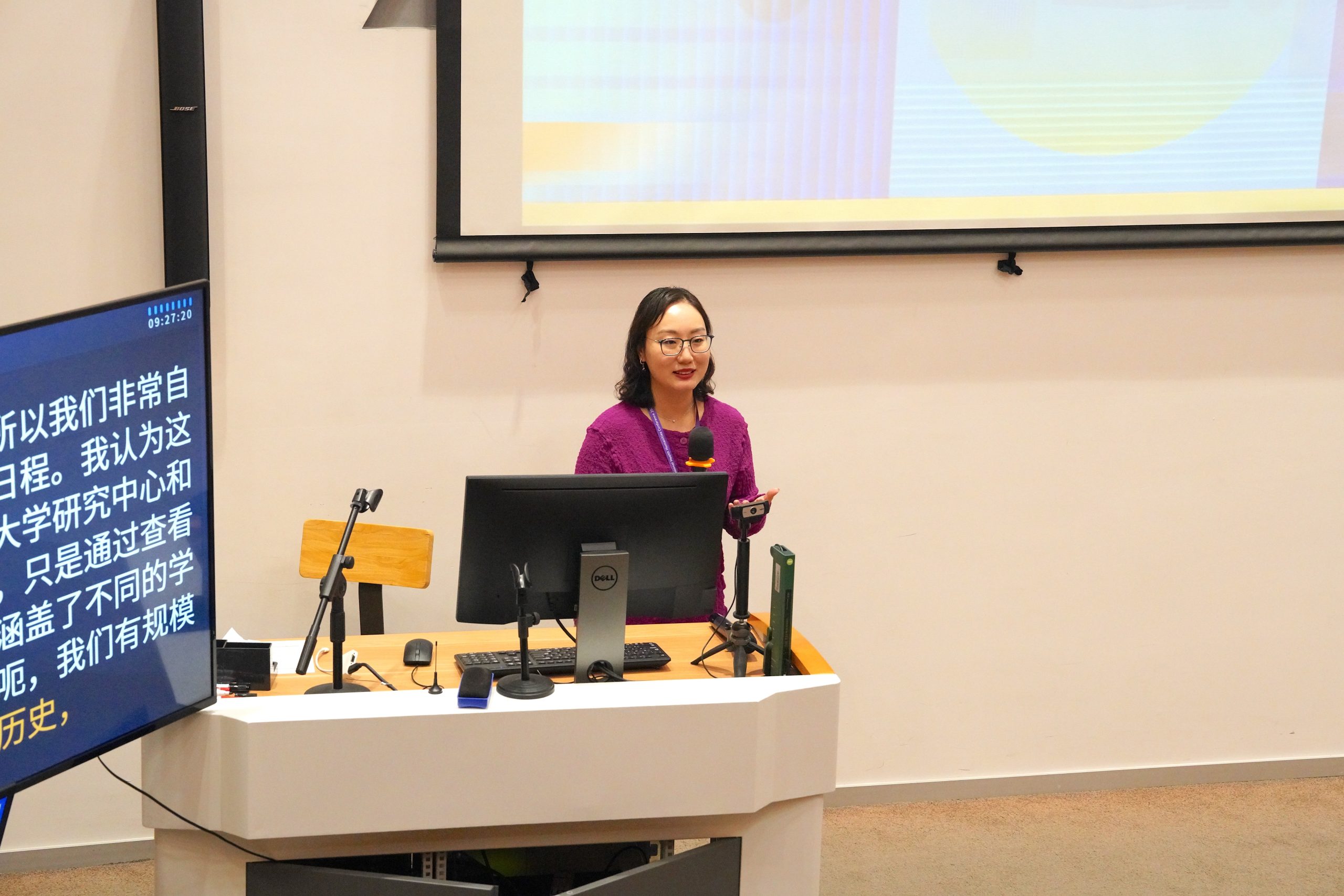 Professor Beibei Tang delivering her opening speech
Professor Beibei Tang delivering her opening speech
Professor Tang expressed her hope that the conference would serve as an important starting point to contribute to new ideas, future research agendas, and the broader field of health humanities research.
Dr. Penelope Scott, Head of the Health Humanities Research Group (HHRG) at CCCS, and Head of the Department of Applied Linguistics at HSS, stated in her opening speech that"we currently face numerous global health challenges, including infectious and non-communicable diseases, mental health issues, and healthy aging." In response to these challenges, XJTLU organized this conference and it " brings together experts and scholars with extensive experience in interdisciplinary health humanities research, spanning medicine, psychology, linguistics, history, design and architecture, and the arts.” She expressed her sincere hope that through diverse perspectives and methodologies, participants of this conference would explore new ideas, develop academic communities, and ultimately contribute to the better global health.
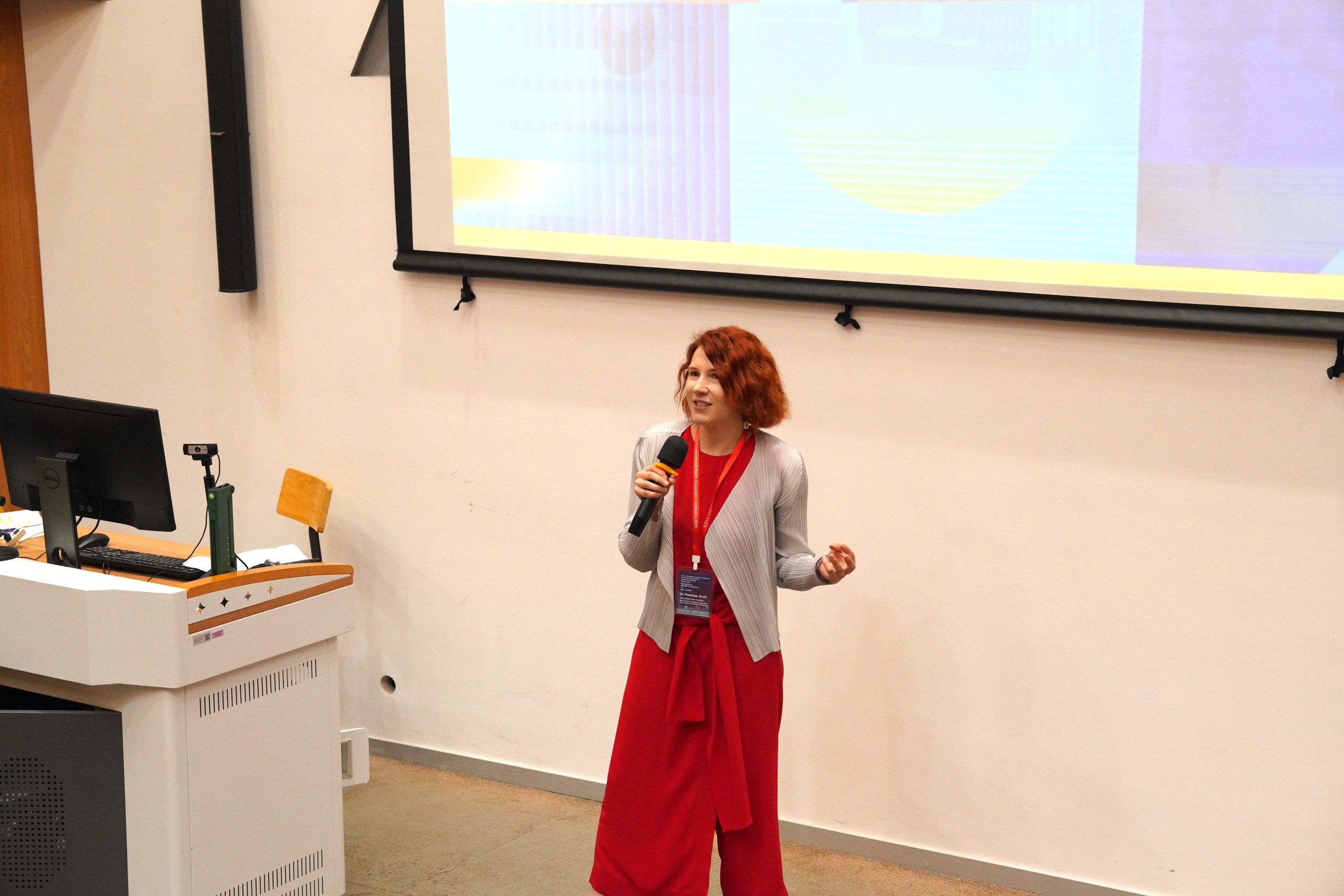
Dr. Penelope Scott delivering her opening speech
The conference hosted three distinguished keynote speakers: Professor Liping Guo, Dean of the School of Medical Humanities at Peking University; Professor Xinzhong Yu, Dean of the School of History at Nankai University; and Paul Crawford, Professor of Health Humanities at the School of Health Sciences and Director of the Centre for Social Futures at the Institute of Mental Health, University of Nottingham, UK.
Professor Paul Crawford delivered the compelling keynote speech titled “Health Humanities as a Shadow Health Service.” In his speech, Professor Crawford emphasized that health humanities is not merely a supplement to traditional medical services but a “shadow health service.” Operating outside the conventional healthcare system, it quietly and effectively improves people’s health and well-being through broader social, cultural, artistic, and humanistic approaches. He highlighted that health humanities activates artistic and humanistic resources, actively collaborating with medical, social, and other sectors, aims to build a more humanitarian and healthier society.
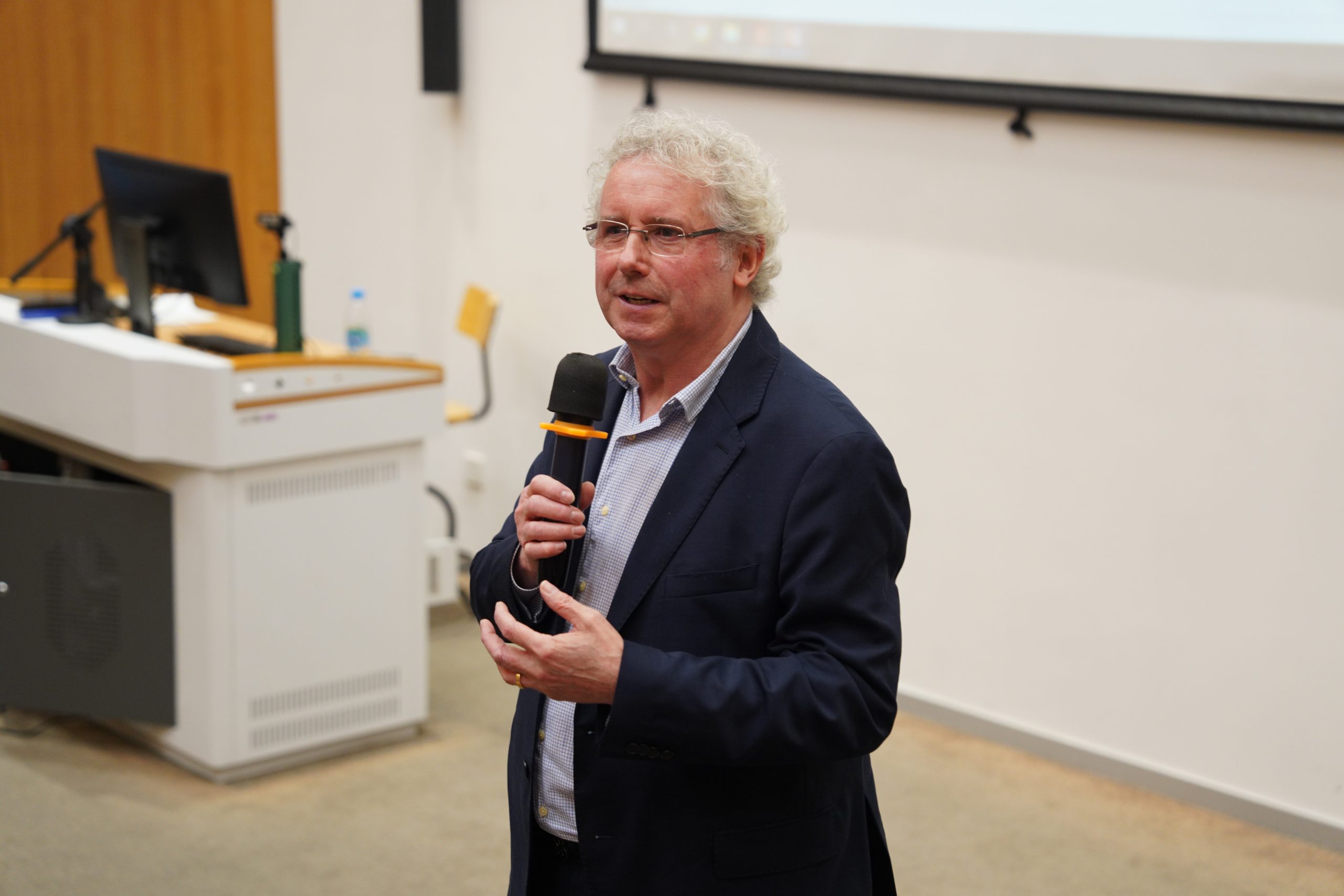
Professor Paul Crawford delivering his keynote speech
Professor Liping Guo from Peking University delivered a keynote speech titled “Medical Humanities and Its Ramifications in China: The Expectations of 'Ren' (仁)”. She noted that the concept of "medicine as an art of benevolence" ("医为仁术") reflects China's unique understanding of medicine. the intrinsic property of medical humanities in China, she explained, is deeply embedded in the profound historical and cultural traditions of the Chinese nation, particularly the Confucian philosophy of "Ren" (仁), or benevolence. Professor Guo emphasized that Chinese medical humanities is forging its own path, which aims to build a medical humanities system based on China's specific context. She expressed her hope for increased interdisciplinary collaboration to foster the thriving development of health humanities in China.
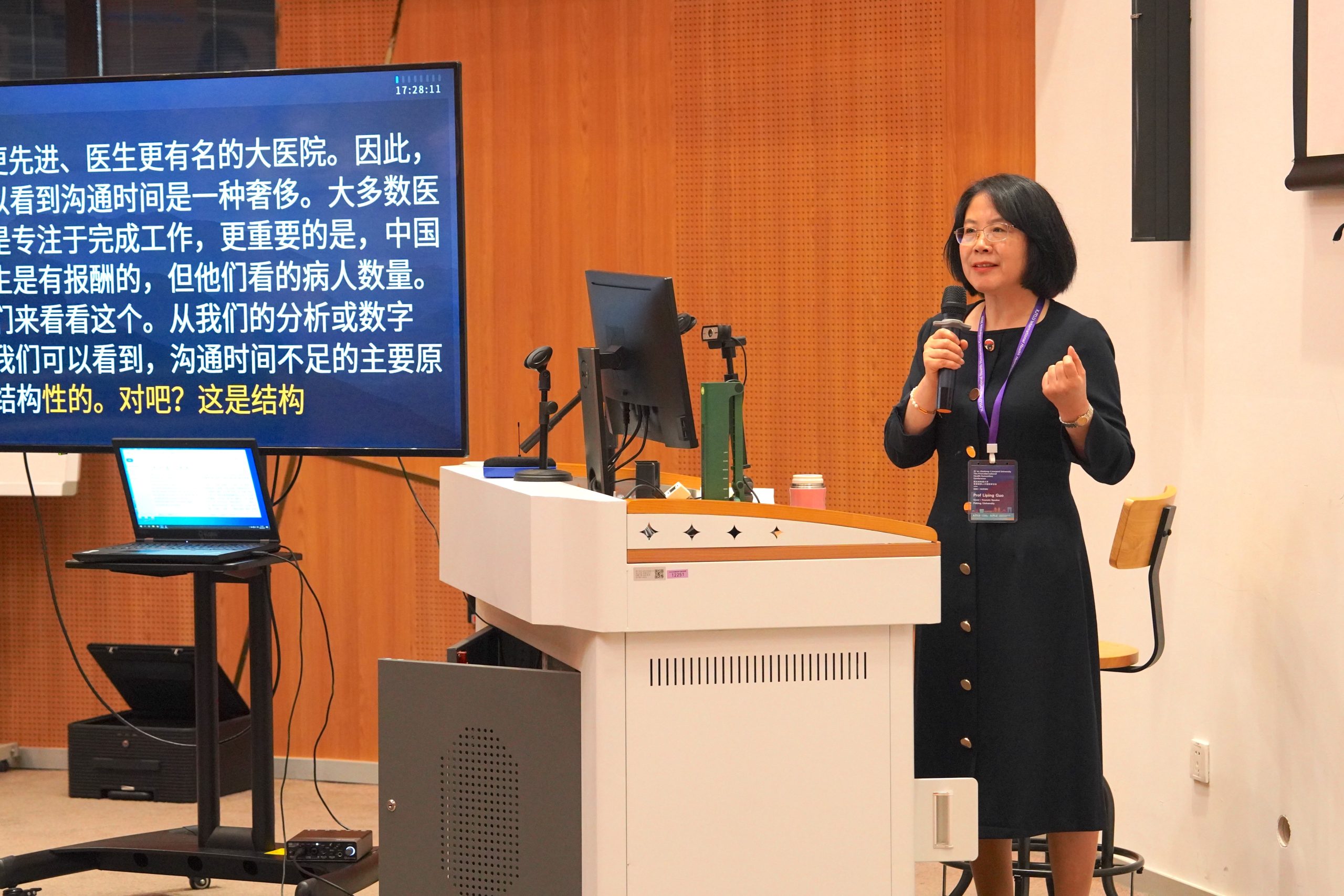
Professor Liping Guo delivering her keynote speech
Professor Xinzhong Yu from Nankai University delivered the keynote speech titled "Reflections on the History of Medicine and Medical Humanities." His presentation explored the evolving paradigms in medical history research and its relationship with medical humanities. Professor Yu emphasized that studying medical history not only deepens our understanding of historical modernity but also provides a tangible appreciation for the significance of medical humanities. He emphasized the need to view the theory and practice of traditional Chinese medicine (TCM) as a process of social construction to understand and reflect on the generation of TCM knowledge within its specific processes and contexts.
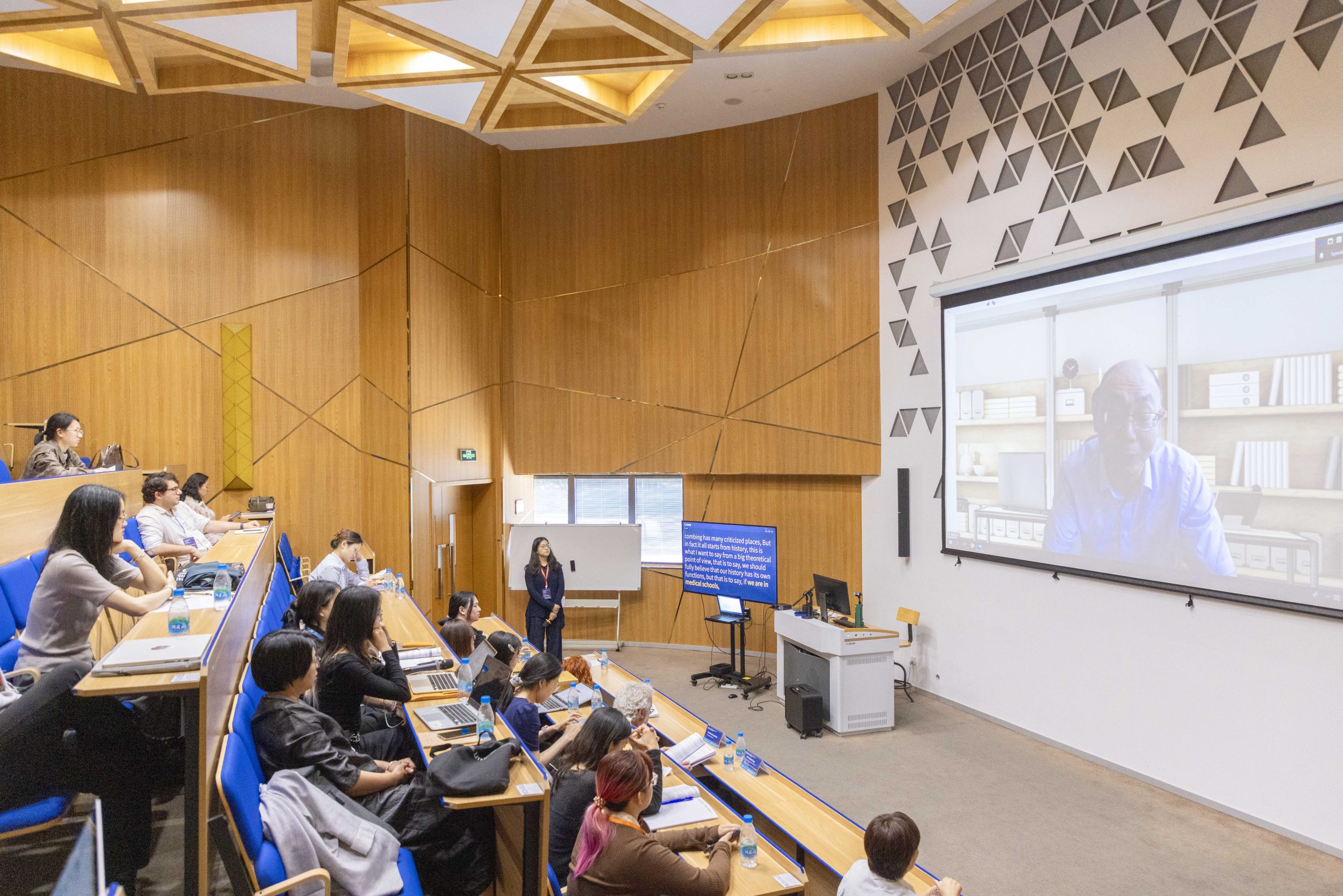
Professor Xinzhong Yu delivering his keynote speech
The two–day IHHC featured 16 parallel bilingual sessions, offered in both Chinese and English, to accommodate participants from diverse linguistic backgrounds. The conference covered a wide range of topics, including patient-doctor interactions, medical practice, psychotherapy, end–of–life care, aging, narrative medicine, medical discourse, ”Yangsheng”, and traditional Chinese medicine culture. Throughout the parallel sessions, participants engaged in in-depth discussions and exchanged ideas within their respective research areas, offering many fascinating perspectives and innovative insights.
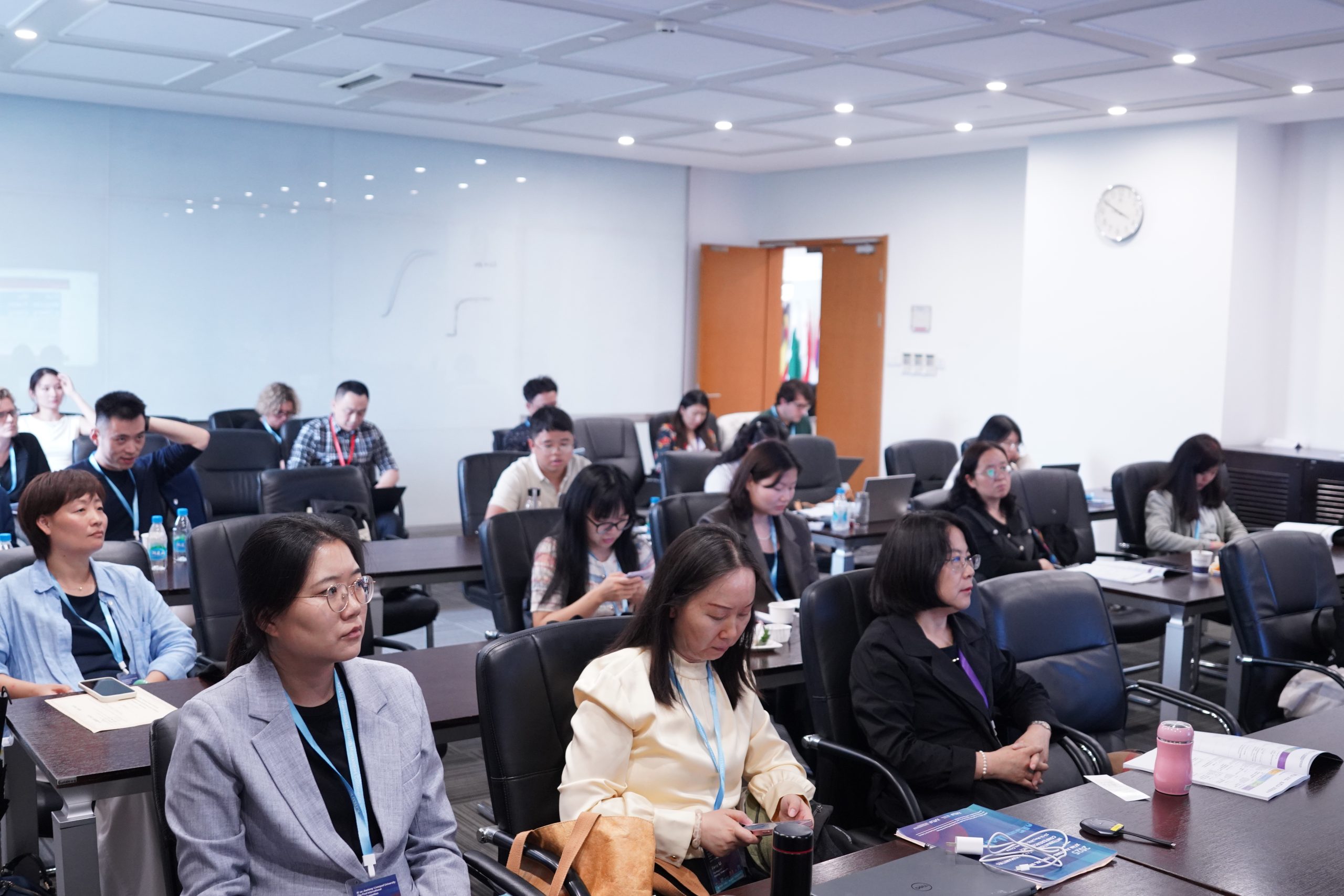
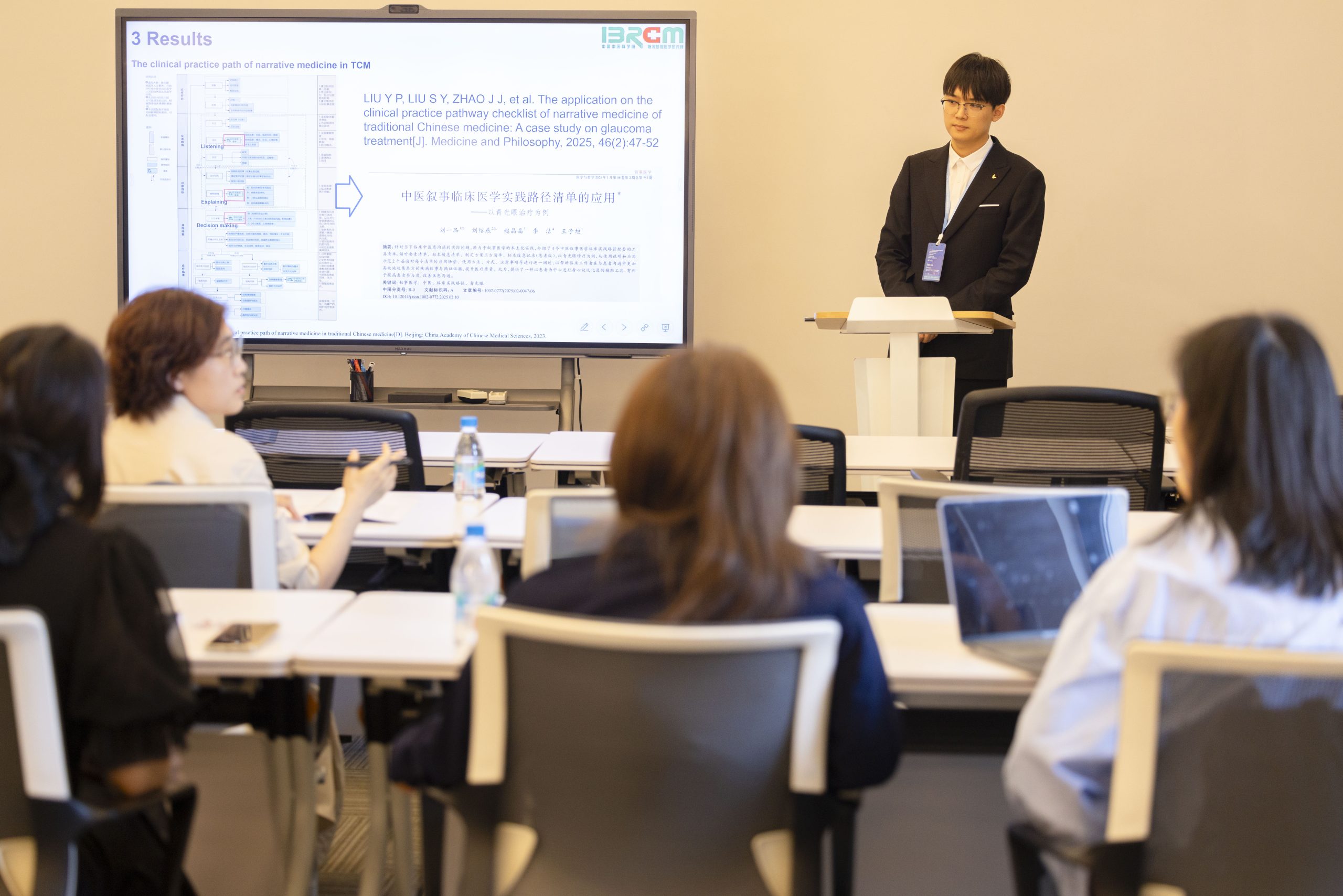
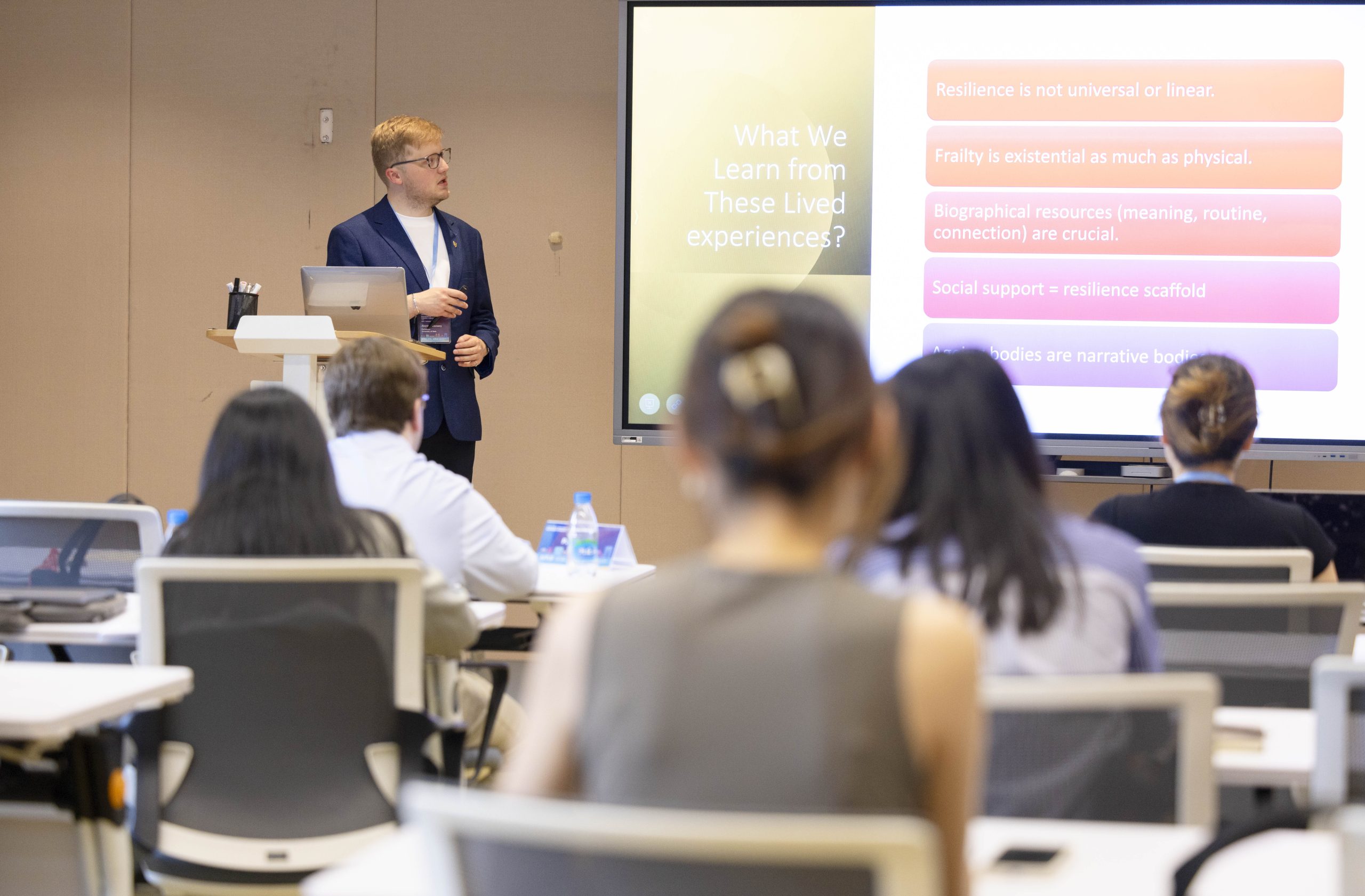
Parallel Session Discussions
Dr. Penelope Scott delivered the closing remarks at the IHHC. She noted that many of the engaging presentations throughout the conference panels provided fantastic and illuminating inspirations. She specifically highlighted the diverse research methodologies presented by various groups, including linguistics, design, literary therapy, and historical perspectives. She firmly believes that this cross-disciplinary dialogue and intellectual collaboration are crucial for broadening academic horizons and propelling health humanities research forward. Looking ahead, Dr. Penelope Scott articulated her hope to forge and maintain lasting collaborative relationships with all participants, collectively contributing to the advancement of the health humanities research.
 Dr. Penelope Scott delivering her closing speech
Dr. Penelope Scott delivering her closing speech
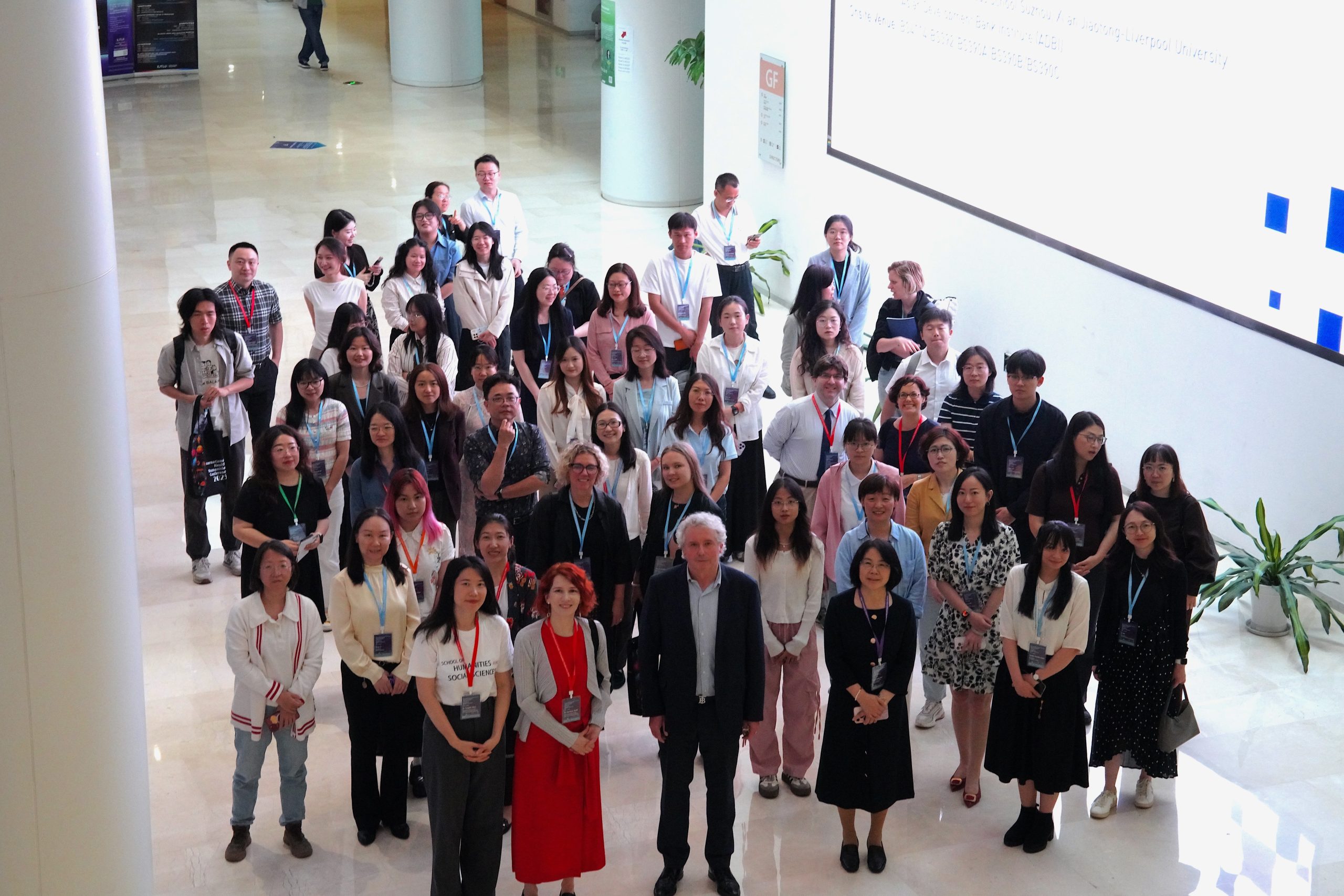
Group Photo of IHHC
Reporter: Yinjie Song
Editor: Yiyi Gu
Photographer: Jingrui Duan, Jingling Wen
Legal Disclaimer:
EIN Presswire provides this news content "as is" without warranty of any kind. We do not accept any responsibility or liability for the accuracy, content, images, videos, licenses, completeness, legality, or reliability of the information contained in this article. If you have any complaints or copyright issues related to this article, kindly contact the author above.
